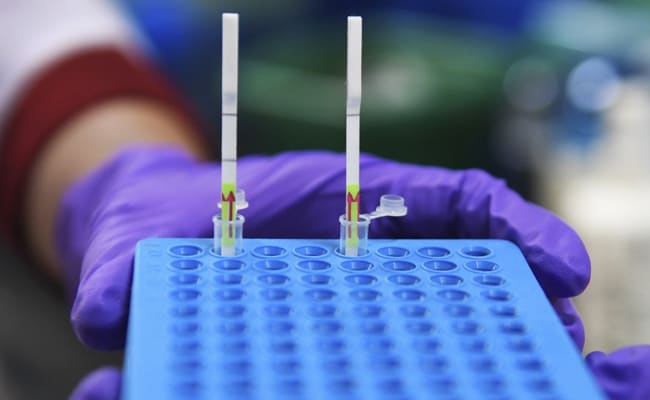Mutations Help Epsilon Coronavirus Variant Evade Vaccine Immunity: Study

3 mutations in the spike protein of Epsilon variant of SARS-CoV-2 help it evade vaccines
Washington:
Three mutations in the spike protein of Epsilon variant of SARS-CoV-2 help the virus to evade the protection offered by current vaccines or past COVID-19 infection, according to a study.
The mutations also provide the variant of concern named CAL.20C a means to totally evade specific monoclonal or lab-made antibodies used in clinics, and reduce the effectiveness of antibodies from the plasma of vaccinated people, the researchers said.
The team, led by researchers at the University of Washington in the US, visualised the variant”s infection machinery to see what is different from the original configuration of the coronavirus, and what the implications of these changes are.
The finding, published in the journal Science on July 1, shows that the Epsilon variant “relies on an indirect and unusual neutralisation-escape strategy.”
Neutralising antibodies are an important specific defence against viral invaders.
A molecular clock analysis shows that the precursor to the Epsilon variant emerged in May last year in California.
By summer of 2020 it had diverged into its B.1.427/B.1.429 lineages and spread across the US.
The variant has been reported in at least 34 other countries since then.
The researchers tested the resilience against the Epsilon variant of plasma from people who were exposed to the virus, as well as vaccinated people.
The neutralising potential of the plasma against the Epsilon variant of concern was reduced about 2 to 3.5 fold, they said.
Like the original SARS-CoV-2 virus identified in Wuhan China in December 2019, the variant infects cells through its spike glycoprotein — the structure that crowns the surface of the virus, and helps it to infect the human cells.
The researchers found that the Epsilon mutations were responsible for rearrangements in critical areas of the spike glycoprotein.
Visualising these mutations helps explain why antibodies had difficulty binding to the spike protein, according to the researchers.
One of the three mutations in the Epsilon variant affected the receptor binding domain on the spike glycoprotein, they said.
This mutation reduced the neutralising activity of 14 out of 34 neutralising antibodies specific to that domain, including clinical stage antibodies.
The other two of the three mutations in the variant affected the N-terminal domain — the start of the spike protein.
The mutations also resulted in a total loss of neutralisation by 10 out of 10 antibodies tested specific to the N-terminal domain in the spike protein, the researchers added.
(Except for the headline, this story has not been edited by NDTV staff and is published from a syndicated feed.)
Source link





